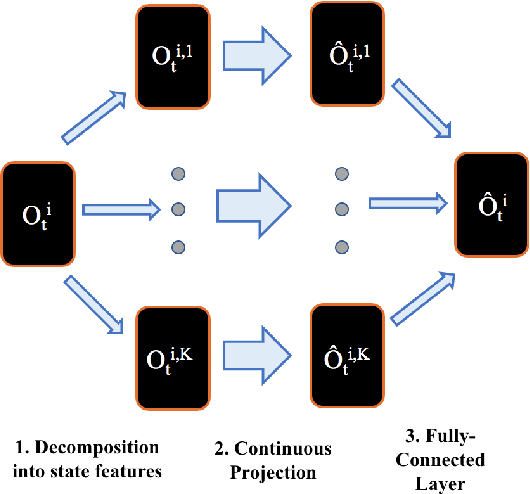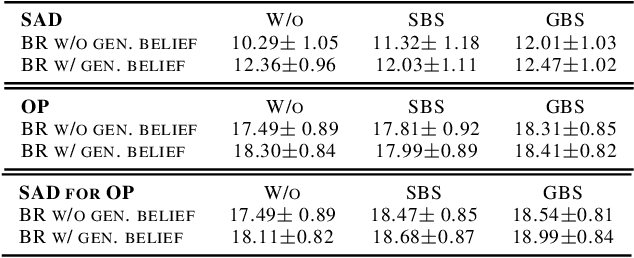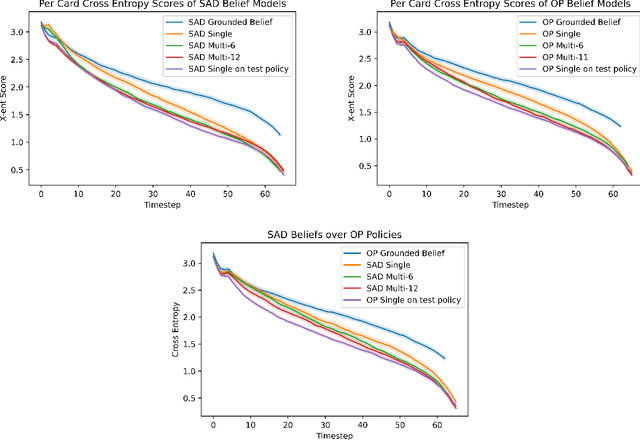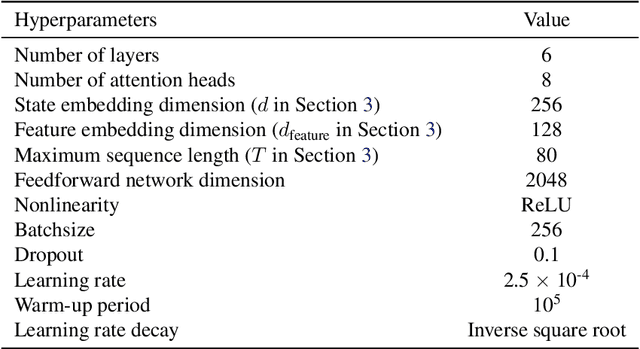Generalized Beliefs for Cooperative AI
Paper and Code
Jun 26, 2022



Self-play is a common paradigm for constructing solutions in Markov games that can yield optimal policies in collaborative settings. However, these policies often adopt highly-specialized conventions that make playing with a novel partner difficult. To address this, recent approaches rely on encoding symmetry and convention-awareness into policy training, but these require strong environmental assumptions and can complicate policy training. We therefore propose moving the learning of conventions to the belief space. Specifically, we propose a belief learning model that can maintain beliefs over rollouts of policies not seen at training time, and can thus decode and adapt to novel conventions at test time. We show how to leverage this model for both search and training of a best response over various pools of policies to greatly improve ad-hoc teamplay. We also show how our setup promotes explainability and interpretability of nuanced agent conventions.
 Add to Chrome
Add to Chrome Add to Firefox
Add to Firefox Add to Edge
Add to Edge